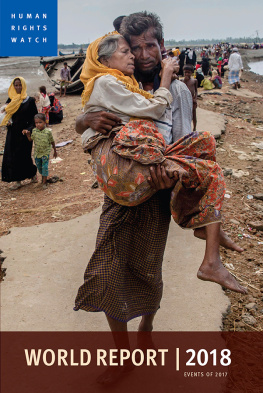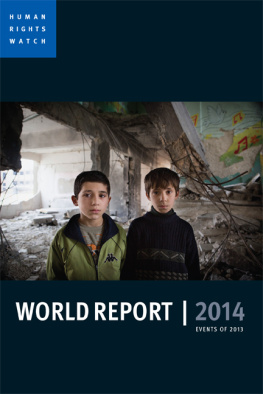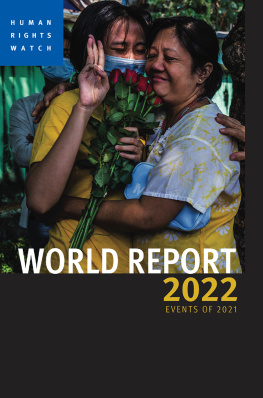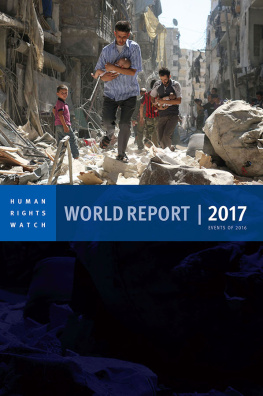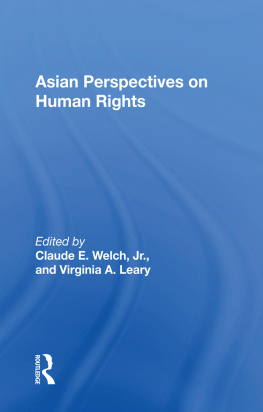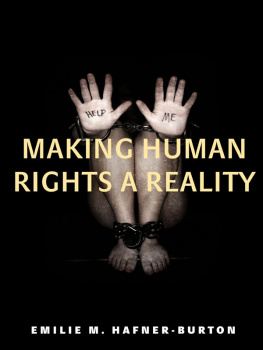Acknowledgments
When we started planning this edited volume on the Third World discourses of human rights we thought that it would not be a particularly onerous set of tasks. After all, the editors only have to identify a set of topics for discussion, enlist one or more authorities on the topics to write essays, provide some substantive feedback on each of the drafts, and then assemble the finals drafts and ship them off to the publisher. But the reality of doing it turned out to be much more challenging than originally anticipated. Not only is there usually insufficient space to cover all of the topics relevant to the broader area of research, but it is rarely possible to include as authors all of the accomplished scholars in the area. Thus, decisions have to be made about coverage and authorship. Moreover, once these matters have been settled, there is the challenge of coaxing the targeted authors to write the first drafts of the designated chapters within a limited span of time. And finally, there is the seemingly endless task of badgering the authors to revise their chapters in accordance with the central theme of the volume, which may be quite extensive, and to submit their revised drafts in a timely manner. The responsibility of preparing camera-ready form for publication further added the drudgery involved with this task.
We experienced all of these challenges in editing this volume, with some being much more time-consuming than initially anticipated. Such editorial challenges notwithstanding, we prevailed. And we did so not only because of our belief in the utility of the volume for scholars and students of human rights, but also because of the commitment and assistance of a number of individuals, to whom we owe a measure of gratitude. Foremost among the individuals are the chapter authors themselves, most of whom found the idea of the volume to be as important as we did. Obviously, if they had not stuck with us, tolerating our frequent badgering and coming through in the end, this volume would not have seen the light of day.
We also acknowledge the acquisition editor Amy King of Lexington Books who accepted our proposal of publishing this volume. Priyadarsini Sengupta and Yajnaseni Chakarborty also warrant thanks for their assistance in copy editing some of the essays. We are also thankful to Suman Hajra who helped us to prepare a detailed index of the book. We also express our gratitude to following institutes for varying degree of support: Bangabasi Evening College, Centre for the Study of Social Exclusion and Inclusive Policy and Department of Anthropology of the University of Calcutta.
Finally, we gratefully acknowledge permission to use the following previously published material:
Chapter 6, Colonial Continuities, Neoliberal Hegemony and Adivasi (Original Dweller) Space: Human Rights as Paradox and Equivocation in Contexts of Dispossession in India by Dip Kapoor is reprinted by permission of, and was first published by, SAGE Publications Ltd. Journal of Asian and African Studies 47(4)/August 2012: London.
A portion of chapter 16, Peoples Health in Peoples HandsA Global Ever-Elusive? by Satyabrata Chakraborty, was reprinted from Democracy and Democratization in the 21st Century (2011) edited by Basu, et al. Har-Anand Publications: New Delhi. Reprinted by permission of Jadavpur University
Subrata Sankar Bagchi
Arnab Das
CHAPTER 1
Universal Claim and Postcolonial Realities: The Deep Unease over WesternCentered Human Rights Standards in the Global South
Marie-Luisa Frick
At the time the first human rights declarations were framed in the United States (1776) and France (1789) and the expansion of the European civilization was aspiring to its peak, the norms and values contained in these documents were considered to be universal to the effect that they were both deemed stemming from a universal human nature and applying to all human beings irrespectively of nationality. When after the Second World War the Universal Declaration of Human Rights (UDHR) was passed by the General Assembly of the United Nations (1948) under the auspices of the United States, the rights stipulated again were proclaimed to be independent from regional or cultural frameworks, despite reservations made by several countries with socialist or Islamic orientation. Todays trend towards globalization and a shift of power from the West to newly industrialized countries in the global South , make it increasingly obvious that the claim whereupon the classical human rights values and norms are universal or even constitute a consensus of mankind, dashes against postcolonial realities that reject the Wests hegemony in moral and political terms. How universal the Western conception of human rights de facto is can be easily guessed when looking at additional or competing human rights declarations, such as the African [Banjul] Charta on Human and Peoples Rights (1981) or the Cairo Declaration on Human Rights in Islam (1990). In this contribution I would like to outline the fault lines pervading the human rights discourse between the West and the global South and analyze to what extent they are grounded in mutual misconceptions, power, political ambitions or profound value conflicts.
Rigid Dichotomies?
Before starting my analysis, I would like to put in perspective the relation between Western societies and their human rights thinking and practice and the societies of the global South, i.e. nations of Central and South America, Africa and Asia. It would constitute a gross falsification of reality to draw the picture of homogenous Western human rights thinking opposed to or challenged by a likewise homogenous human rights understanding of nonWestern countries. On the contrary, reality is far more complex. Just as much considerable support for Western human rights standards exists all over the worldincluding countries whose regimes vehemently refuse themthere also exists obvious discomfort within Western societies regarding the interpretation and range of specific human rights norms, e. g. the right to freedom of speech, the right to marry and found a family. Today in Europe and North America this discomfort primarily is based on religious reservations vis--vis the alleged unbound freedom of man proclaimed by the secularliberal human rights tradition. Only if bound to truth, so Pope Benedict XVI., a prominent critic of what he termed the tyranny of modern societies relativism, true freedom can unfold. Unrestricted freedom or human rights, respectively, would constantly threaten to override the basic human rights of othersespecially in case of unborn children deprived of their dignity and right to life by the modern right to reproductive self-determination (cf. Ratzinger 2005). Similar anxiety is uttered, for example, by Patriarch Alexy II., the primate of the Russian Orthodox Church, in his address to the Council of Europe where he makes the diagnosis of a break between human rights and morality (Patriarch Alexy II. 2007). This break, so Patriarch Alexy II., comes to the fore in a new generation of rights that contradict morality, and [] human rights [..] used to justify immoral behavior (ibid.).
Against the background of such widespread unease over secular and liberal human rights discourses, it should become clear that the focus of this contribution is not laid on the global South for its alleged intrinsic unease over Western human rights, but rather for the overall issue of Human Rights from Third World Perspective .
General Unease Over WesternCentered Human Rights Standards: The Coloniality of Knowledge
In the course of decolonization countries of the global South may have (re) gained political autonomy, but hardly any economic independence, andaccording to manystill less independence from Western epistemic hegemony. From the eurocentric perspective, the Western way to see the world, to interpret mans being, to organize social relationships and the political sphere was regarded superior to all other traditions and in this alleged superiority the legitimacy was found to impose it on others. It was, however, not only this ethnocentric mentality of superiority, which conditioned the overall influence of European culture and which just as well can be found in all other great cultural traditions. Above all, the scientifictechnologicalmilitary supremacy of the European powers contributed to spreading their culture. It is therefore not surprising that as soon as this domination based on power andenough timesbrute force began to erode, the return to domestic resources in matters of religion, arts and education gained in importance. The epistemic tradition of the West, its materialistic science, its legal tradition, its anthropology, etc., increasingly suffered the loss of universalitythe idea of human rights being no exemption.


